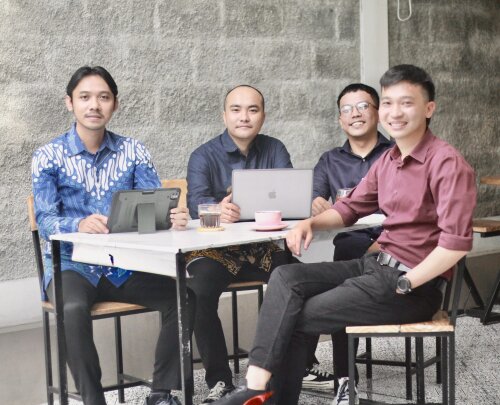Best Child Visitation Lawyers in Indonesia
Share your needs with us, get contacted by law firms.
Free. Takes 2 min.
Free Guide to Hiring a Family Lawyer
Or refine your search by selecting a city:
List of the best lawyers in Indonesia
About Child Visitation Law in Indonesia
Child visitation laws in Indonesia are designed to ensure that children receive the care and support they need from both parents, even after a separation or divorce. The legal framework emphasizes the child's best interests, recognizing the importance of maintaining a relationship with both parents. The Indonesian laws governing child visitation are part of family law, dictating the rights and responsibilities of parents toward their children in cases of divorce or separation. Visitation arrangements can be agreed upon mutually by the parents or determined by the court if an agreement cannot be reached.
Why You May Need a Lawyer
While some parents can amicably agree on visitation arrangements, others may encounter challenges that necessitate legal intervention. Common situations where you might need a lawyer include:
- When there is disagreement between parents about the visitation schedule.
- If there are concerns about the child's safety during visitations.
- When one parent seeks to modify an existing visitation order.
- If you need to enforce a visitation order that is being violated by the other parent.
- In cases where one parent wishes to relocate with the child, affecting visitation rights.
- When seeking to establish visitation rights if they were not defined during initial divorce proceedings.
Local Laws Overview
Child visitation law in Indonesia is influenced by the Child Protection Law and Marriage Law. Key aspects include:
- Child's Best Interests: The overarching principle in determining visitation rights is the child's best interests, ensuring their welfare and development are prioritized.
- Parental Rights and Responsibilities: Both parents retain rights and responsibilities to maintain a relationship with the child, regardless of custody status.
- Judicial Involvement: Courts can intervene to establish visitation arrangements if parents cannot agree or if the child's welfare is at risk.
- Modification of Arrangements: Visitation orders can be modified in response to changes in circumstances or the child's needs.
Frequently Asked Questions
What factors do courts consider when determining visitation rights?
Court decisions are primarily based on the child's best interests, considering factors like the child's age, emotional needs, and the parents' ability to provide a stable environment.
Can grandparents or other family members obtain visitation rights in Indonesia?
Yes, courts can grant visitation rights to grandparents or other family members if it is in the child's best interests and contributes positively to their development.
How can a visitation agreement be enforced if one parent is not complying?
You can seek legal intervention to enforce a visitation order if one parent consistently violates the agreed terms. A lawyer can help file a petition in court to address this issue.
Can visitation rights be denied?
Visitation rights can be restricted or denied if there is substantial evidence that visitation would harm the child's physical or emotional well-being.
What should I do if I want to relocate with my child?
If relocation affects existing visitation arrangements, it is crucial to discuss this with the other parent and seek legal advice to make necessary modifications through the court.
How can I modify an existing visitation order?
To modify a visitation order, you must file a request with the court, demonstrating a significant change in circumstances that warrants a modification.
Is mediation an option for resolving visitation disputes?
Yes, mediation is often encouraged as a non-adversarial process to help parents resolve disputes regarding visitation arrangements, keeping the child's best interests at the forefront.
How does the legal process work for establishing visitation rights?
The legal process often involves petitioning the court where the custody case was handled, presenting evidence and arguments regarding a suitable visitation plan for the child.
What happens if there is domestic violence involved?
If domestic violence is a concern, this may greatly impact visitation rights. Courts may impose supervised visitation or restrict access to ensure the child's safety.
Are visitation rights permanent?
Visitation rights can be reconsidered and modified as circumstances change, always focusing on the child's evolving needs and best interests.
Additional Resources
When seeking advice regarding child visitation, several resources can provide support and information:
- Ministry of Women's Empowerment and Child Protection: Offers information and assistance for family law matters.
- Legal Aid Institutes: Many organizations provide free or low-cost legal assistance to individuals handling family law issues.
- Child Welfare Organizations: Groups like Save the Children in Indonesia offer resources and support for improving child welfare and rights.
Next Steps
If you find yourself needing legal assistance with child visitation in Indonesia, consider the following steps:
- Consult with a qualified family law attorney to understand your rights and options.
- Gather all relevant documentation related to your case, including existing court orders, communication records, and evidence supporting your claims.
- Explore mediation services to resolve disputes amicably, if appropriate.
- Contact governmental bodies or legal aid organizations for additional support and resources.
Taking informed and timely action can significantly impact the outcome of your child visitation concerns, ensuring that the child's best interests remain a priority.
Lawzana helps you find the best lawyers and law firms in Indonesia through a curated and pre-screened list of qualified legal professionals. Our platform offers rankings and detailed profiles of attorneys and law firms, allowing you to compare based on practice areas, including Child Visitation, experience, and client feedback.
Each profile includes a description of the firm's areas of practice, client reviews, team members and partners, year of establishment, spoken languages, office locations, contact information, social media presence, and any published articles or resources. Most firms on our platform speak English and are experienced in both local and international legal matters.
Get a quote from top-rated law firms in Indonesia — quickly, securely, and without unnecessary hassle.
Disclaimer:
The information provided on this page is for general informational purposes only and does not constitute legal advice. While we strive to ensure the accuracy and relevance of the content, legal information may change over time, and interpretations of the law can vary. You should always consult with a qualified legal professional for advice specific to your situation.
We disclaim all liability for actions taken or not taken based on the content of this page. If you believe any information is incorrect or outdated, please contact us, and we will review and update it where appropriate.
Browse child visitation law firms by city in Indonesia
Refine your search by selecting a city.















